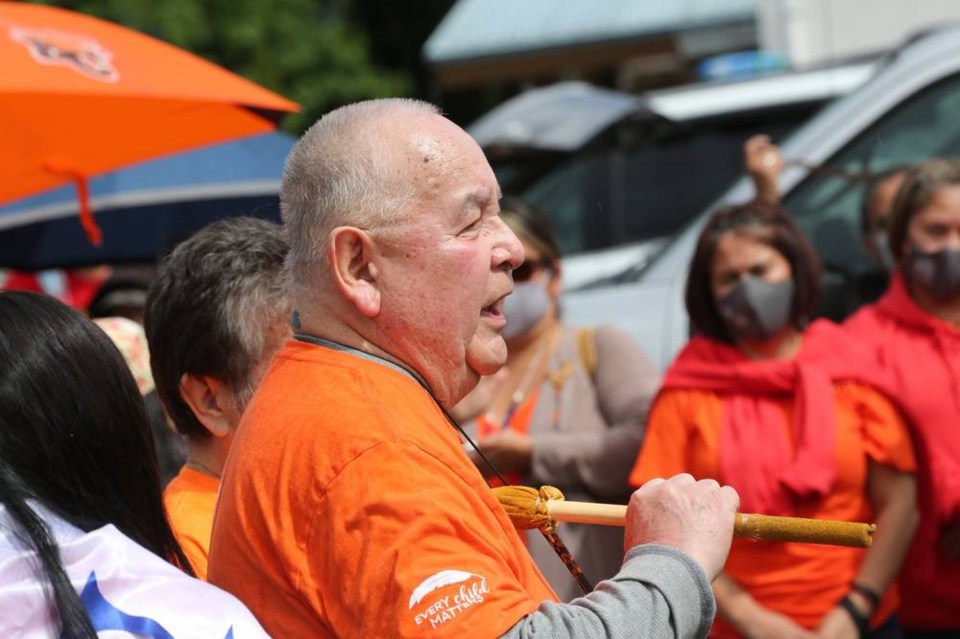The Tseshaht First Nation in Port Alberni says it plans to start investigating this coming week whether there are unmarked graves on land around the former Alberni Indian Residential School.
A project co-ordinator will be hired, along with a company providing ground-penetrating radar services, Chief Ken Watts said Friday.
Overgrown land must be cleared before the radar can be brought in, he said.
The nation owns the former school site, as well as additional property behind it that may need to be examined as well, Watts said.
Some of the school’s buildings have been torn down, while a hall and a gymnasium remain standing and are frequently used, although the hall may be torn down in future.
Watts said the first step is to gather information and interview school survivors about potential locations to investigate.
Watts said federal and provincial funding is expected to cover the costs of the work.
Like other nations embarking on similar efforts, the Tseshaht say they will have mental health and other supports in place.
The Ahousaht First Nation, based on Flores Island, and the ‘Namgis First Nation, at Alert Bay, are preparing for similar work. The Penelakut First Nation, off Chemainus, has found what are believed to be more than 160 unmarked and undocumented graves.
Watts said cultural cleansing and ceremonies will be performed prior to using radar.
Engagement with survivors of the school, elders and other leaders, along with community members, will be carried out throughout the process, he said.
“We are hoping to have a working group of survivors to help guide us in this work.”
This is “not going to be easy work and it’s not going to be quick,” said Watts, adding it has reopened old wounds for members of the Tseshaht Nation and those from other communities who attended the school. “It’s been a really tough time in our community.”
Watts expects the nation to announce in coming days plans to create a memorial to past students. Donations have already come in from local businesses.
The Alberni Indian Residential School operated between 1900 and 1973. It was destroyed by fire three times and rebuilt.
Students came from various communities on Vancouver Island, including Campbell River, Saanich, Ahousaht, Nanaimo, Beecher Bay, Nanoose, the Malahat, Port Renfrew, Cape Mudge, Cowichan, and Clayquot. Others arrived from elsewhere in the province, including Haida Gwaii, Terrace, Hartley Bay, Musqueam, Moricetown, Nisga’a and many more locations.
Arthur Henry Plint worked as a supervisor at the school between 1948 and 1968. In 1995, he was sentenced to 11 years in jail for 18 counts of indecent assault.



